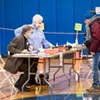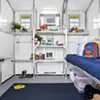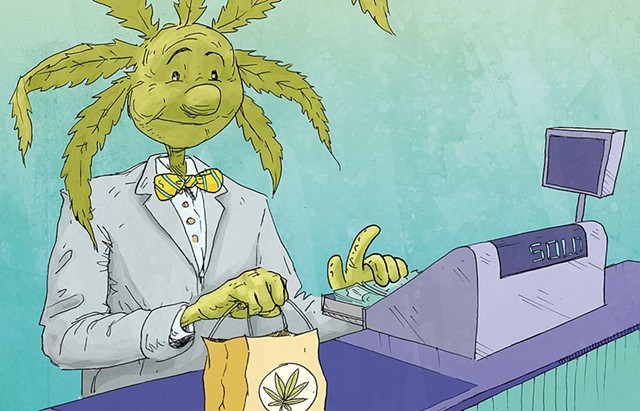Cannabis entrepreneurs will need a city permit before they can sell their wares in Burlington this fall.
The new requirement, approved by the Burlington City Council on Monday, applies only to people hoping to open a retail shop in Vermont’s adult-use market, which is slated to launch in October. Growers and other producers are exempt from the city rules, though they — like retailers — must still obtain a state license.
Under the state’s cannabis laws, municipalities are allowed to form local boards that can approve or revoke cannabis licenses. In Burlington, a subcommittee will review applications before submitting them to the Local Cannabis Control Commission, which will be composed of all 12 city councilors.
Burlington city councilors had hoped to give the city even more control over its cannabis market. In January 2021, the council approved a resolution to charge an additional tax on weed sales to fund programs that would help Black, Indigenous and people of color participate in the industry. The goal was to give a leg up to communities that have been disproportionately targeted by the war on drugs.
Burlington Voters Back Ballot Measures on Weed, Evictions By Big Margins

Burlington Voters Back Ballot Measures on Weed, Evictions By Big Margins
By Derek Brouwer
Off Message
But state regulators decided that municipalities can’t impose any new taxes on weed products, aside from a city’s 1 percent local option tax. In a memo to the council, Burlington officials said they would lobby to change those rules during the coming legislative session.
Meantime, the city’s Department of Business and Workforce Development will offer training programs to BIPOC entrepreneurs and will help people access loans and grants from a state development fund. The state has also pledged to help “social equity applicants” — which includes BIPOC folks and people who were previously incarcerated for cannabis offenses — enter the market.
Planning director Meagan Tuttle also briefed councilors on cannabis zoning rules, saying that the city plans to treat weed shops just like any other retail use. The only exception: Cannabis shops must be at least 500 feet from school buildings, per state law. The city will publish a map showing the boundary of those buffer zones in the coming weeks.
Earlier in the meeting, councilors passed a resolution that directs city staff to draw up another voting map as part of the city’s ongoing redistricting process.
Since 2015, the city has been divided into eight wards and four districts — North, South, East and Central — for a total of 12 councilors. Each district is composed of two wards, giving residents two elected officials: a councilor from their ward and another from their geographical district.
The new concept, however, would create five two-councilor districts and two single-member districts for a total of seven wards with 12 councilors.
The idea, councilors said, is to keep the New North End and Old North End as two distinct city neighborhoods — an objective that proved either impossible or difficult with other configurations city officials came up with.
Burlington’s Redistricting Process Has Barely Begun, but Conflict Is Already Brewing

Burlington’s Redistricting Process Has Barely Begun, but Conflict Is Already Brewing
By Courtney Lamdin
City
Councilors have been discussing reapportionment since this spring and have yet to find consensus. Prompted by new U.S. Census data, redistricting requires cities to ensure voting districts have roughly equal populations — and in Burlington, they don’t. Councilors have already vetted a seven-ward map, plus other versions with eight and 12 wards with between 12 and 16 councilors.
Independent mapping groups have proposed other ideas. One group has put forward an eight-ward map that would maintain boundaries between the Old North End and New North End. The map would also split the city’s considerable college student population — which dominates the present-day Ward 8 — into several wards, and would create a new “downtown” ward to represent those residents’ interests. Another group’s map accomplishes some of those same goals.
The city’s new seven-ward map will be posted to the city website. The council aims to firm up a proposal to put before voters on a future ballot.
“I don’t know that this is for sure the one that we want, but I think that this may end up being a compromise,” Councilor Zoraya Hightower (P-Ward 1) said.
Also Monday, councilors approved nearly $1.5 million in construction contracts to build an emergency shelter community on Elmwood Avenue.
Funded with coronavirus relief money, the project will consist of 30 shelter pods, a modular bathroom facility and a Community Resource Center whose staff will connect people with social services. The pods, which will have electricity, heat and air conditioning, will provide temporary housing for about 35 people.
Work began at the site late last week. City attorneys initially told officials they didn’t need council approval for the contracts because the Board of Finance already signed off, but the attorneys later reversed that opinion and officials brought the item to Monday night’s meeting.
Burlington Takes Aim at Ending Homelessness With ‘Shelter Pod’ Community

Burlington Takes Aim at Ending Homelessness With ‘Shelter Pod’ Community
By Courtney Lamdin
City
The documents approved also include purchase agreements for the pods themselves. Washington State-based Pallet Shelters is providing 20 pods for a total of $215,000; Up End This, a Johnson company, is providing 10 for just under $230,000.
The city aimed to open the shelter community in July, but those plans were delayed when it couldn’t find a partner to manage the site. Brian Pine, director of the city’s Community Economic & Development Office, told Seven Days earlier this month that officials are negotiating with an organization “that has skills and experience in this area,” but he wouldn’t reveal the name.
According to a management plan for the site, the operating partner will refer people to the pod community; manage contracts for site maintenance; and provide round-the-clock staffing. The city now aims to open the site by mid-fall, Pine said.
“The city’s never engaged in a project of this sort,” he said. “We want to make sure that all the conditions that will lead to success are in place.”


